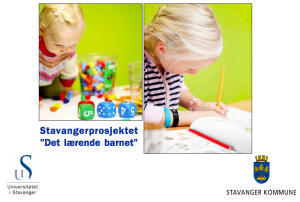The final plenary session at PME-NA was “Reexamining some widely promoted ideas: What do we know, and what do we believe?” by Suzanne Wilson and Deborah L. Ball. They started off by talking about urban myths vs. knowledge. After having described these two concepts, they listed seven popular themes in our field that they wanted to discuss in relation to those two terms – urban myths and knowledge.
The first theme they started discussing was teachers’ mathematical knowledge. They started off by presenting some of the main issues in the discussion. Do teachers need college level mathematics courses to be properly prepared for teaching? Knowing the material in depth, knowledge beyond the curriculum, perspectives on mathematics as a discipline are some aspects to it. There also seem to be an unclear relationship between academic study and SCK, PCK. Another perspective is that mathematics needed for teaching is not well-aligned with curriculum for college level mathematics.
SW had some interesting reflections about how PCK was picked up really fast after having been presented by Lee Shulman in 1986, and now it is all about MKT and everyone is talking about, measuring MKT. DB had this notion of “alphabet soups”, which I liked, referring to all these acronyms (MKT, PCK, etc.), and the question was raised: have we done ourselves any good by doing this?
High-quality field experience was the next theme for discussion. A widely promoted idea is that teacher candidates need to spend extensive time in classrooms. In this connection, it is important to bridge the gap between theory and practice. Other points in the discussion are that time is important, but an often neglected issue is detail about the clinical curriculum; there is also an underdeveloped pedagogy for clinical teaching – often left to personal preference. Finally, there is the issue of confounding “practice” as a form of learning with “field” as a setting. DB made a nice parallell to medical training, where students never start working with real patients – they start training o something else.
The next theme was “effective professional development”. A widely promoted idea in this connection is that “one shot” sessions are ineffective for teacher learning. Many believe that it takes time to learn teaching, but then again, important things CAN be learned from one single session. It matters more how it is taken up and used. The problem, SW argued, is not the “one shot”, it is more related to the content and the larger context.
A next, and very much related theme, was the pedagogy of teacher education. Teacher educators’ teaching should, according to a widely promoted idea here, model the pedagogy that they are teaching as teachers. This is, of course, related to the common saying: “we should practice what we preach”. One problem, or issue, that comes in here is that teacher education students ARE NOT K-12 learners. Teaching mathematics is, DB argued, a different subject than teaching the teaching of mathematics – it is not only that the students are different, the subjects are different – so the pedagogy is not necessarily appropriate. Teaching to teach is different from modelling the teaching!
After having discussed these issues, they returned to a discussion of whether or not it is a matter of best practices or urban myths, and whether or not there is a dichotomy between the two. They pointed our attention to the importance of being skeptical about what we think we know.
At the very end of their presentation, DB said that they seem to disagree with themselves on some of this, so I am not sure I have been able to capture everything that was said correctly here either – so, please consider this as my personal (possibly faulty) notes on this :-)



